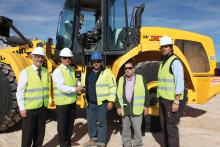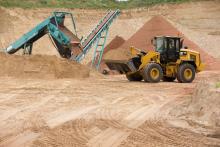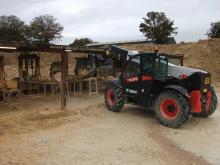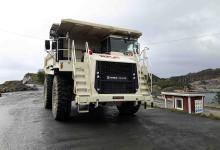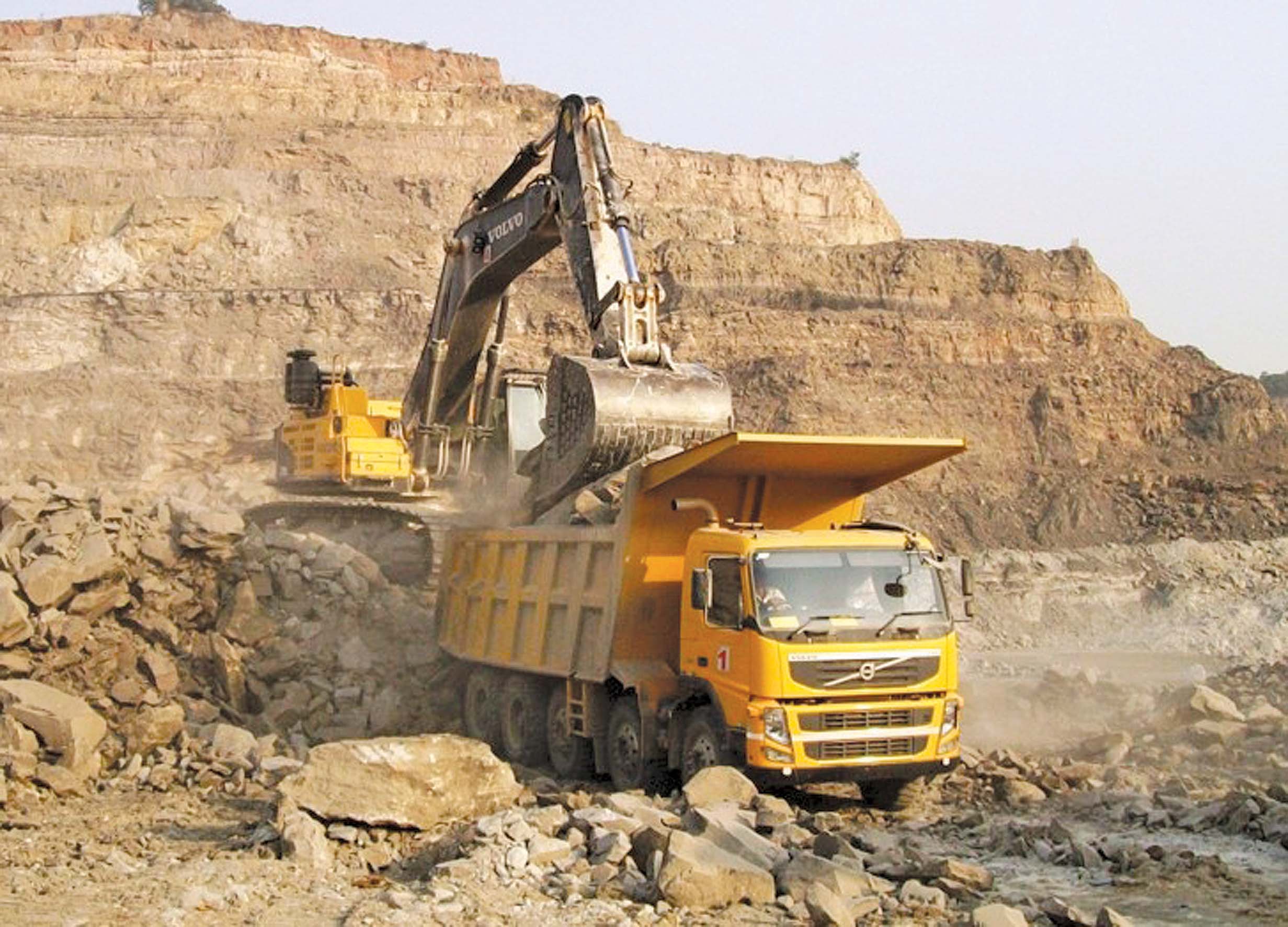
Quarry overburden in the quarrying and aggregate production process is the only by-product, and being a natural product it offers no pollution risk. Indeed, while the material which overlies a rock formation cannot be usually be used for the production of aggregates, it has to be disposed of in a managed manner.
Often it is removed to a disposal site, then shaped and re-vegetated to blend in with the landscape.
For example, the Boral Peppertree Quarry in Marulan South in New South Wales Southern Tablelands, some180km south-west of Sydney, Australia,was a greenfield site when the construction programme to turn it into a big aggregates quarry started during July 2011.
Scheduled to be completed soon, early activities included topsoil and overburden stripping and construction of earth bunding.
“This enabled construction of a 10m high earth bund around the perimeter of the 30-year approved quarry,” says a company spokesman.
The layer of soil and overburden was stripped in progressive stages and hauled to emplacement areas, and following this rock will be drilled, blasted and loaded directly into the in-pit primary crushing plant.
In the Royal Forest of Dean in County Gloucestershire, south-west England, a combination of
All supplied by
Natural Pennant stone from the Royal Forest of Dean has been used as a traditional building and paving material for centuries. Many of the oldest cities and towns in the south of England and South Wales have been paved with Pennant stone, which has a naturally hard-wearing surface with a good slip skid resistance, though it can also be specified with a shot blasted finish which gives an enhanced slip skid resistance.
The first stage in the process to win the stone utilises the Doosan DX520LC excavator to remove overburden down to the layers of Pennant stone to a depth of 18-19m from the top of the quarry. The Montabert XL2600 hydraulic breaker mounted on the DX340LC excavator is then used to remove the layers of rock that lie above the layers of Pennant stone to form a work bench to work on to quarry the stone.
The overburden and rock produced by the two Doosan excavators are loaded into an articulated dump truck which carries it from the face to a dumping point higher up in the quarry. Here the material is separated using a screening bucket and provides a source of building stone and cropped walling stone, which also forms part of the product range available from Forest Pennant.
When formed, the work bench provides a platform for the Bobcat E80 excavator, equipped with a drilling head and compressor system, which produces holes in the Pennant stone, and these are utilised to split the rock using a hydraulic feathering machine. The DX340LC levers 12-14 tonne blocks from the quarry face and the Doosan DL420 wheeled loader takes them to trucks which carries them to the Forest Pennant factory for further processing.
In the east Indian state of Madhya Pradesh, Montecarlo Construction Limited (MCL) is removing overburden at the NCL open-cast coal quarry in Singrauli. MCL, headquartered in Ahmedabad in the neighbouring state of Gujarat, is removing more than 650,000m³ of overburden material over a five-year contract.
In addition to top soil and rock, the overburden is caused by general coal mining operations, a waste product consisting of coarse rock fragments and fine coal particles.
MCL is using a fleet of Volvo Constriction Equipment (
For its next lignite (brown coal) project in Mata-no-Madh, Kutchh, contracted by Gujarat Mineral Development Corporation, MCL has ordered a further 20 EC480 D-Series excavators.
The machines were supplied to MCL by Volvo dealer, West India Equipment.

